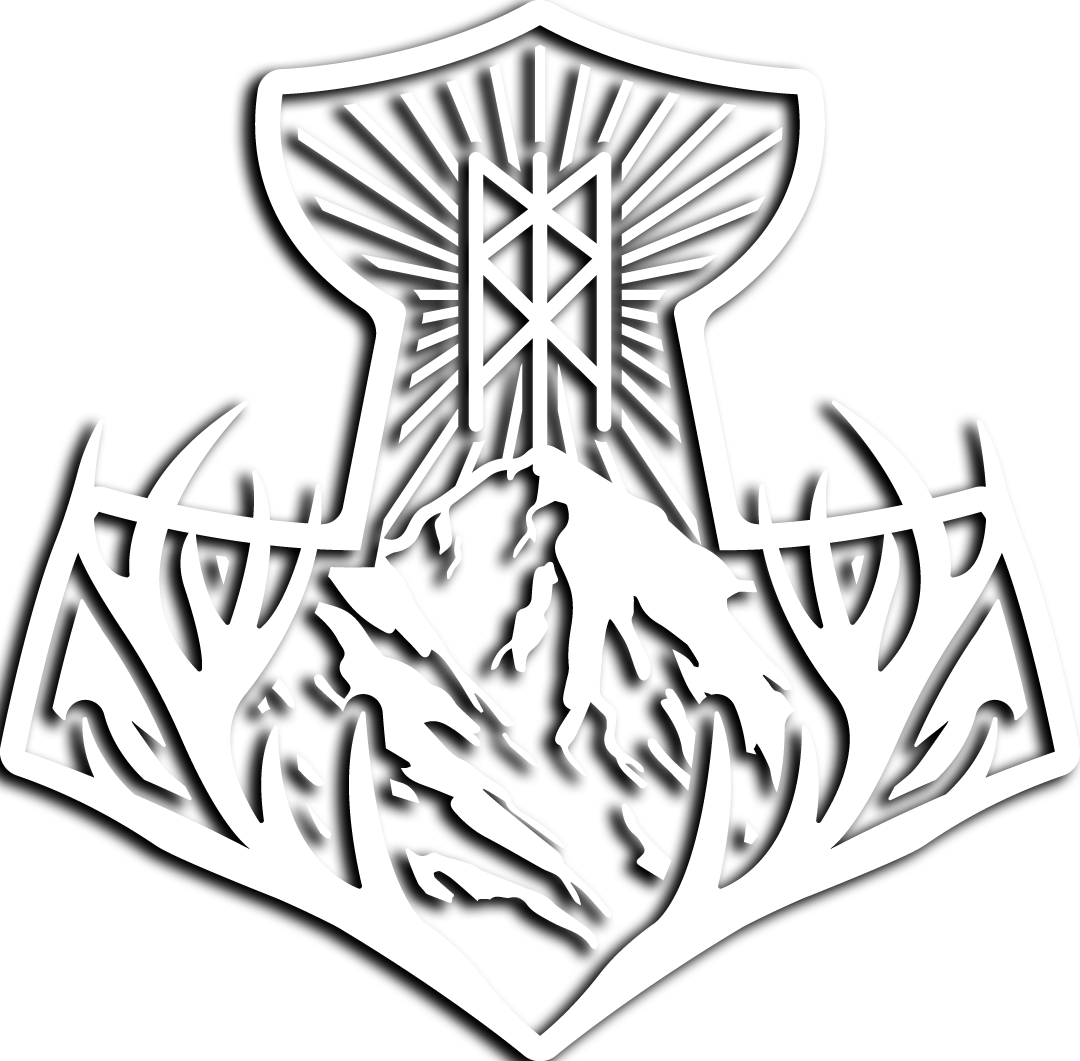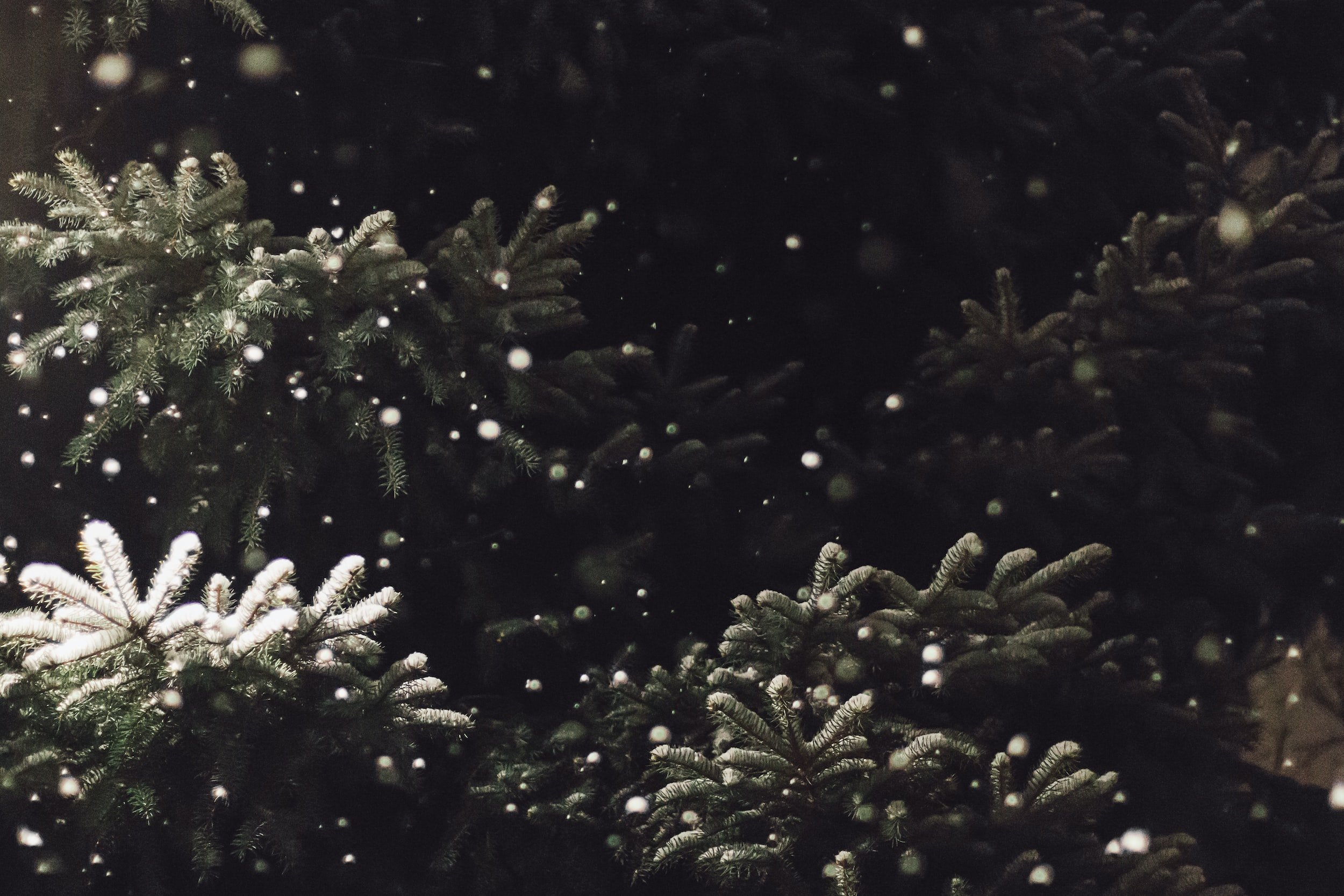Winter Nights
‘Tis the season, all around, with snowflakes bright and merry tidings alight. The wind grows colder and the nights longer, and although it has long been meant as a season of cheer and love, the reality is much different for some folk. Winter has its challenges; through the bitter weather and the lingering darkness, suffering is inherent. Many did not survive the winter long ago when our ancestors walked Midgard.
That is why Yule became such an important tradition amongst ancient cultures. In the darkest season, when death and suffering await you at every turn, there must be some semblance of hope. A candle in the dark. A glimmering light at the end of the road, a breath of spring to lighten the load. A reminder that there are so many things to be grateful for, even with the layers of frozen land and increasingly claustrophobic homes.
How does one navigate the Christmas season as a modern pagan practicing the old ways? It’s a question often asked and often answered but is one that I feel to be highly individual at the end of the day. What does Yule mean to you? What feelings does Winter bring to you? These questions alone will bring numerous viewpoints and lived experience to the surface, and they are the baseline for any form of holiday inspired practice.
For some, Yule is family and warmth and feasting and joy. The way you choose to portray the Yule season in your home and on your altar will likely nod to these feelings and create a cozy, hygge atmosphere. Practices for this form of celebration would be feasting with family and friends, hosting holiday parties, wrapping gifts, and spending quality time with the ones you love. All of this is typical at Christmas time, so many find it is the path of least resistance when beginning their pagan journey and allows us to keep a sense of that childhood nostalgia associated with the winter season as well.
For others, Winter and Yule are only reminders of what has been lost over the year. Be it family, friends, or community it is a time that focuses heavily on human bonds. If you already feel alone, for any reason, the Yule season can bring all those difficult feelings to the surface and force you to confront them. The darkness of winter is relentless, and it can be so easy to feel yourself retreat and enter hibernation mode. It is as understandable as it is common, and the natural tendency to lean into the darkness in the winter months bleeds into many different aspects of spirituality as well as humanity in general.
Shadow work is a highly discussed topic in the autumn and winter particularly. The term was first coined by Carl Jung, a famous psychologist famous for his work on the different aspects of the psyche. It has gotten a lot more attention in popular culture in recent years due in part to the rise of new-age spirituality and witchcraft in modern media. Shadow work, at its core, is focused upon bringing your unconscious impulses and reactions to the surface and examining why exactly it is you react to those stimuli in such a way. By its very nature, shadow work is rooted in trauma. It is not something that is easy, or joyful, or anything you would look forward to at the end of a long, hard year. But it is something deeply fulfilling, healing, and doing this hardest of work will leave you feeling more balanced and prepared to take on the new year ahead. Many choose to retreat into themselves in the dark winter months of Yule, retreat into their homes and the shadows to reflect on where they are and where they would like to find themselves in the months to come. This is also a form of Yule celebration, just not the typically joyful and boisterous hailing that is so popular and broadcasted.
Escaping into nature during the dark months is not an option for most, whether it be by bitter cold and several feet of snow, or dangerous black ice and inaccessible land. For pagans, this can be most tricky to navigate. Where do we go to hail the Gods when we cannot traverse the heathen church, Midgard? Many modern heathens have altars set up at home for personal practice and daily work, but the urge to do the most important offerings and the most sacred rituals outside is undeniable.
I suppose the entire point is that I truly have no answer for you.
I can state facts, I can offer suggestions, point out correlations between practices. But the most important part of any aspect of paganism is also the easiest to access, the surest to trust, and the simplest to utilize. It is you.
What does Yule mean to you? What feelings does the season invoke in you? What brings you comfort in the darkness? Hold tight to those things, celebrate the simple joy you feel every day, and practice gratitude for all life’s comforts we enjoy that our ancestors never could have even dreamed of.
For me, Yule is warm blankets and hot chocolate, sitting by the fireplace listening to idle chatter and enjoying the peaceful dark of night. It is experiencing the peace of nothing more than the company of those you love, the warmth of a home cooked meal, and the optimism of a new year to come.
Yule is the healing of a troubled mind, reminded once again that there are those out in this world who love you truly and unconditionally.
It is the midnight laughter of friends, tired but unwilling to sleep and miss out on even a single second of each other’s company.
It is the barrage of a snowstorm, fierce and deadly but oh so beautiful as it whips violently through the barren winter landscape, the Wild Hunt racing along beside it.
It is the gentle, genuine smile of a loved one as they unwrap the perfect gift that they didn’t even know they wanted, but now cherish more than anything else.
Yule means many things to many people, but whatever it is that Winter invokes in you I hope it inspires you to grow, gives you comfort when you need it, and brings you the strength to continue fighting on until the warmth of Spring comes again.
Winter blessings to you all, and Happy Yule.
-Lauren

